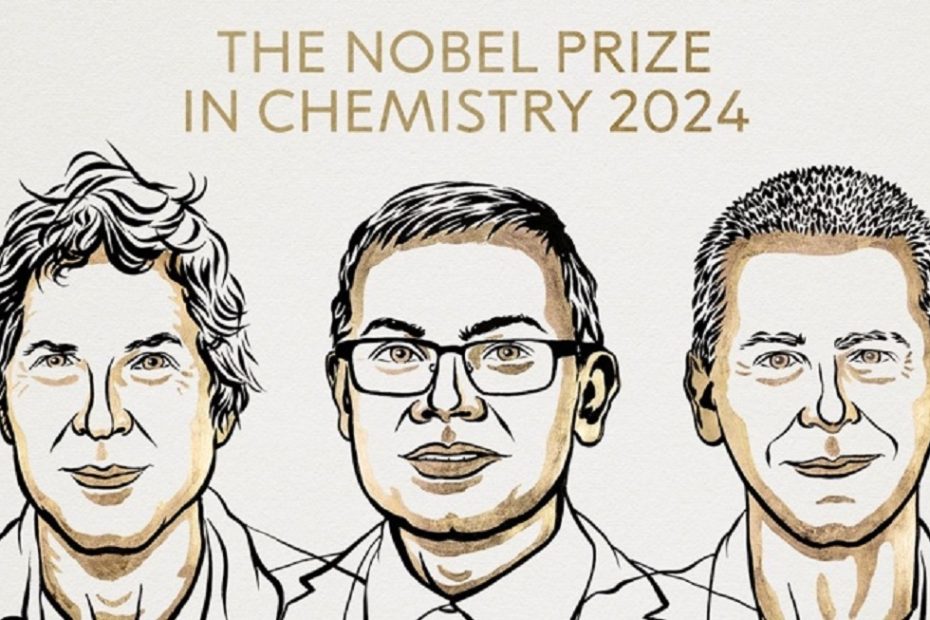In 2024, the Nobel Prize for Chemistry made history by honoring not just human scientists, but also artificial intelligence (AI). For the first time, a machine’s role in advancing chemistry was recognized at the world’s highest scientific stage. This landmark achievement isn’t just about algorithms—it’s about how technology and human curiosity are merging to push science into uncharted territory.
What Was the Nobel Prize Awarded For?
The Nobel Committee awarded the prize to a group of researchers who developed and applied advanced AI models to solve one of chemistry’s most complex problems: predicting the behavior of molecules and designing new compounds with specific functions.
At its heart, this breakthrough revolved around AI’s ability to process enormous amounts of chemical data—millions of reactions, structures, and outcomes—and use that knowledge to accurately forecast new possibilities. The AI didn’t just “analyze” data; it actively suggested new molecules and pathways that human chemists had never thought of before.
The Challenge AI Solved
Chemistry is a field of unimaginable complexity. Even small molecules can have thousands of possible configurations, and predicting their stability or reactivity can take years of human effort. Traditional trial-and-error approaches are slow, expensive, and sometimes impossible when dealing with fragile or exotic compounds.
AI turned this process upside down. By learning patterns in existing chemical knowledge, it could quickly predict how a new molecule might behave—essentially acting as a virtual laboratory. Instead of running thousands of costly experiments, scientists could ask the AI model for the most promising candidates, drastically accelerating discovery.
Why This Matters for the Future of Science
This Nobel-winning achievement isn’t just a trophy for AI—it’s a glimpse of how the future of science might look:
- Drug Discovery: AI can design molecules that could serve as new medicines, cutting years off the development cycle. Already, early-stage drugs for cancer, Alzheimer’s, and rare diseases are being designed this way.
- Sustainable Materials: It can propose eco-friendly plastics, catalysts for clean energy, or batteries with better efficiency.
- Fundamental Chemistry: By uncovering hidden rules of molecular interactions, AI helps chemists understand nature at a deeper level.
The implications are vast: more efficient healthcare, greener technologies, and faster scientific progress.
The Human-AI Partnership
It’s important to note that AI did not “win” the prize alone. Human scientists were behind its training, guiding its learning process, and validating its predictions. The Nobel Committee emphasized that this was a collaborative triumph—AI is a tool, not a replacement for human creativity.
What sets this case apart is how AI transitioned from being a passive assistant to an active partner in discovery. It went from crunching numbers to generating entirely new scientific ideas, a shift that signals a new era of research.
Ethical and Philosophical Questions
The recognition also raises profound questions:
- Should AI be considered a “discoverer” in its own right, or just an advanced instrument?
- How do we ensure that the data fed into these models is unbiased and accurate?
- Who is responsible if AI suggests a pathway that leads to harmful consequences?
These debates are now central to discussions in the scientific and ethical community.
A Turning Point in History
The 2024 Nobel Prize for Chemistry marks a turning point in the history of science. Just as the microscope opened a new world for biology, or particle accelerators transformed physics, AI is now reshaping chemistry.
This recognition tells us that science is no longer a human-only endeavor—it’s a collaboration between human imagination and machine intelligence. The real victory lies in the fact that when combined, both are capable of uncovering truths that neither could achieve alone.
